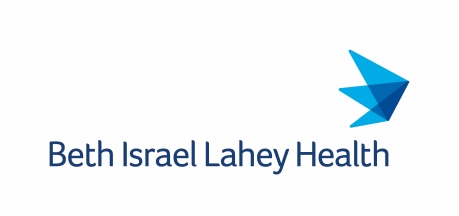Newswise — Welcome to the April 2019 edition of Beth Israel Deaconess Medical Center’s (BIDMC) Research & Health News Digest.
This month’s update includes:
- Five reasons to see a urogynecologist (Urogynecology)
- Five ways to lower the risk of oral cancer (Head and Neck Cancer)
- Aortic aneurysms: Who’s at risk? (Cardiovascular)
- Living with an aortic aneurysm (Cardiovascular)
- HPV virus causes rise in throat cancer (Head and Neck Cancer)
- Mouth cancer: A lifestyle disease (Head and Neck Cancer)
- Two birds, one stone: Drug combination may prove effective against a second type of leukemia (Cancer)
- Diet high in leucine may fuel breast cancer’s drug resistance (Cancer)
- Study suggests hospital readmissions reduction program also benefited patients not directly targeted by the policy (Readmissions/Outcomes)
- MicroRNA regulates drug tolerance in subset of lung cancers (Cancer)
If any of these briefs pique your interest and you’d like to speak with one of our experts, please contact us at [email protected] or at 617-667-7300. You can also reach the BIDMC communications team member on call through the BIDMC page operator at (617) 667-4700 and asking for pager ID #33880.
BIDMC Research & Health News Digest: April 2019
Five Reasons to See a Urogynecologist
Monica L. Richardson, MD, MPH, a urogynecologist at BIDMC, shares how specialists in female pelvic medicine, or urogynecologists, provide personalized, compassionate care for a variety of conditions.
Five Ways to Lower the Risk of Oral Cancer
Anupam Desai, MD, a medical oncologist in the Head and Neck Cancer Program at the Cancer Center at BIDMC shares some tips to help reduce the risk of oral cancer.
Aortic Aneurysms: Who’s At Risk?
Brett Carroll, MD, Medical Director of the Aortic Center at the CardioVascular Institute at BIDMC discusses risk factors of aortic aneurysms.
Living with an Aortic Aneurysm
Brett Carroll, MD, Medical Director of the Aortic Center at the CardioVascular Institute at BIDMC suggests some heart-healthy lifestyle changes to reduce the risk of an aortic aneurysm rupturing.
HPV Virus Causes Rise in Throat Cancer
Scharukh Jalisi, MD, Chief of Otolaryngology and Medical Director of the Head and Neck Cancer Program at the Cancer Center at BIDMC, sheds light on the facts about throat cancer.
https://www.bidmc.org/about-bidmc/blogs/wellness-insight-landing/cancer/2019/04/hpv-throat-cancer
Mouth Cancer: A Lifestyle Disease
Anupam Desai, MD, a medical oncologist in the Head and Neck Cancer program at the Cancer Center at BIDMC, shares some facts on mouth cancer – and how to prevent it.
https://www.bidmc.org/about-bidmc/blogs/wellness-insight-landing/cancer/2019/04/mouth-cancer-smoking
Two Birds, One Stone: Drug Combination May Prove Effective against a Second Type of Leukemia
Researchers led by Pier Paolo Pandolfi, MD, PhD, Director of the Cancer Center and Cancer Research Institute at BIDMC, tested to see if arsenic trioxide (ATO) was effective in combination with another drug called all-trans retinoic acid (ATRA) in in both the mouse model of acute myeloid leukemia (AML) and in human AML cells in the lab. The team determined that the combination proved “powerfully and exquisitely effective” against a subset of AML and could serve as the foothold researchers need to overcome resistance to therapy—a common challenge in treating AML. The findings were published in Cell Research.
https://www.bidmc.org/about-bidmc/news/2019/04/two-birds-one-stone
Diet High in Leucine May Fuel Breast Cancer’s Drug Resistance
A team of researchers at the Cancer Center at BIDMC has discovered an unexpected relationship between levels of the amino acid leucine and the development of tamoxifen resistance in ER+ breast cancer. Led by Senthil K. Muthuswamy, PhD, the researchers further identified a key protein that imports leucine into cells and modulates sensitivity to tamoxifen in ER+ cells in the lab setting. The findings, published in the journal Nature, reveal a potential new strategy for overcoming resistance to endocrine drugs in ER+ breast cancer patients.
https://www.bidmc.org/about-bidmc/news/2019/04/leucine-and-tamoxifen-resistance
Study Suggests Hospital Readmissions Reduction Program Also Benefited Patients Not Directly Targeted by the Policy
In a recent study, a team of researchers led by Robert W. Yeh, MD, MSc, Director of the Smith Center for Outcomes Research in Cardiology at BIDMC’s CardioVascular Institute, found that implementation of the HRRP was associated with a significant decline in readmissions not just for Medicare patients, but also for Medicaid patients with the three target conditions originally targeted by the policy (heart attack, heart failure, and pneumonia). The findings, published today in the April issue of Health Affairs, suggest that the HRRP may have had a “spillover” effect of reducing readmissions for patients who were not directly targeted by the policy. The researchers determined the policy had no effect on readmissions among privately insured patients.
MicroRNA Regulates Drug Tolerance in Subset of Lung Cancers
New research conducted at the Cancer Center at BIDMC found that a microRNA – a small fragment of non-coding genetic material that regulates gene expression – mediates drug tolerance in lung cancers with a specific mutation. The study, led by Frank J. Slack, PhD, Director of the HMS Initiative for RNA Medicine at the Cancer Center at BIDMC suggest that the microRNA could serve as a potential target for reversing and preventing drug tolerance in a subset of non-small-cell lung cancers. The findings were published in Nature Metabolism.
https://www.bidmc.org/about-bidmc/news/2019/04/quashing-the-resistance
MEDIA CONTACT
Register for reporter access to contact detailsCITATIONS
Health Affairs; Nature Metabolism; Nature; Cell Research
